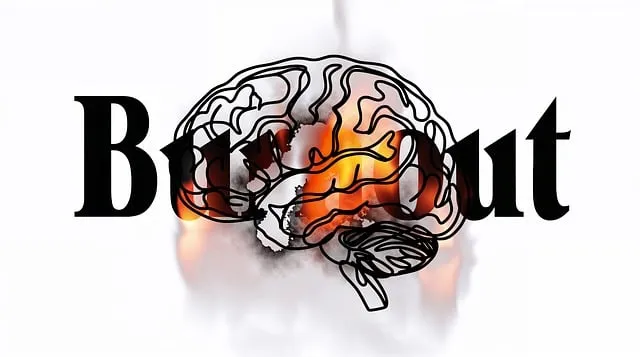Resilience, built through frameworks like RFM (Recovery, Flexibility, Mastery), is crucial for navigating mental health challenges. Lone Tree, a Kaiser-recognized support system, offers personalized programs combining evidence-based practices like Social Skills Training and Mood Management workshops to empower individuals with stress management tools. By integrating communication, empathy-building, and compassion cultivation strategies, Lone Tree's exercises help cultivate coping mechanisms, adapt to change, and build supportive networks. Their RFM-based approach, echoed in Kaiser's services, prioritizes holistic well-being, empowering both first-time seekers and experienced individuals to overcome adversity and foster positive mindsets within their communities.
“Discover the power of RFM (Resilience, Flexibility, and Mastery) in fostering mental resilience. This comprehensive guide explores how techniques like the Lone Tree exercise, inspired by Kaiser’s approach to mental health support, can empower individuals to navigate challenges. We’ll walk you through a personal journey of identifying your RFM, offering step-by-step exercises, and sharing real-life success stories. Learn how to embrace resilience, gain mental health clarity, and thrive like never before with these effective strategies.”
- Understanding RFM: The Foundation of Resilience
- Lone Tree and Mental Health Support: A Kaiser Approach
- Identifying Your RFM: A Personal Journey
- Exercises to Build Resilience Step-by-Step
- Real-Life Success Stories: Overcoming Challenges with RFM
Understanding RFM: The Foundation of Resilience

Resilience is a crucial aspect of mental well-being, especially for individuals facing challenges like those who might be living alone (Lone Tree) or seeking mental health support through organizations such as Kaiser. Understanding RFM (Recovery, Flexibility, and Mastery), a framework that underpins resilience, can significantly enhance one’s ability to navigate adversity. This concept forms the foundation for various exercises designed to build mental fortitude.
By focusing on Recovery, individuals learn to cultivate coping mechanisms to overcome setbacks; Flexibility involves developing adaptability in the face of change; and Mastery encourages taking control over personal experiences. Incorporating Communication Strategies, Empathy Building Strategies, and Compassion Cultivation Practices into these RFM-based exercises can further strengthen resilience. These practices not only foster understanding but also create a supportive network, enabling individuals to persevere through challenging times.
Lone Tree and Mental Health Support: A Kaiser Approach

Lone Tree, a recognized Kaiser approach to mental health support, emphasizes holistic well-being through unique programs tailored to individual needs. This initiative aims to empower individuals with effective tools for stress management and mood regulation, addressing the mind-body connection crucial for resilience building. By combining evidence-based practices such as Social Skills Training and Mood Management workshops, the organization creates a supportive environment where people can learn and practice coping strategies in a safe space.
In addition, Lone Tree offers Stress Management Workshops designed to teach participants practical techniques for navigating life’s challenges. These workshops, conducted by mental health professionals, not only enhance emotional intelligence but also foster a sense of community. By integrating these various components, the organization ensures that individuals receive comprehensive care, enabling them to thrive and build resilience in all aspects of their lives, whether seeking help for the first time or continuing their mental health journey.
Identifying Your RFM: A Personal Journey

Identifying your RFM—Resilience, Flexibility, and Mindfulness—is a powerful personal journey that can significantly enhance mental health and overall well-being. It’s akin to navigating a dense forest (a metaphor often used for life’s challenges) with a compass, where the Lone Tree represents yourself. Just as each tree has unique roots and characteristics, so do individuals; understanding your RFM involves recognizing your strengths and vulnerabilities, much like identifying familiar landmarks in an unfamiliar terrain.
When seeking mental health help, whether through Kaiser or other resources, consider adopting Compassion Cultivation Practices. This involves cultivating self-compassion and empathy, which can build resilience. Risk Management Planning for Mental Health Professionals also plays a crucial role, as it equips individuals with tools to handle stressors, much like a map guiding you through the forest. Similarly, Mental Wellness Journaling Exercise Guidance offers a way to track thoughts and emotions, helping you understand your unique RFM landscape and fostering personal growth.
Exercises to Build Resilience Step-by-Step

Building resilience is a crucial aspect of maintaining good mental health, especially in challenging times. The Lone Tree Community Outreach Program offers a range of exercises designed to empower individuals and communities to overcome adversity. Here’s a step-by-step guide on how to get started:
1. Identify Your Strengths: Begin by reflecting on your personal strengths and resources. Similar to the way Kaiser provides mental health help, encourage participants to recognize their inner resilience, skills, and past accomplishments. This step forms the foundation for fostering a positive mindset and self-belief.
2. Develop Coping Strategies: Teach practical tools for managing stress, anxiety, and difficult emotions. The program can incorporate various techniques like deep breathing exercises, mindfulness meditation, or physical activities to help individuals process their feelings. These strategies, when regularly practiced, become powerful allies in times of distress.
3. Build Social Connections: Loneliness can significantly impact mental health. Encourage participants to reach out and connect with others, fostering a sense of community. The Implementation of social support networks has been proven effective in Mental Illness Stigma Reduction Efforts, allowing individuals to share experiences, offer encouragement, and provide a safe space for vulnerability.
4. Set Achievable Goals: Help individuals break down larger challenges into manageable tasks. Setting achievable goals provides a sense of accomplishment and motivates continued progress. Similar to Stress Management Workshops Organization initiatives, this process empowers participants to take control and actively participate in their healing journey.
5. Practice Self-Care: Educate participants on the importance of self-care routines, including adequate sleep, healthy eating, and engaging in hobbies. Taking care of one’s physical and emotional needs is essential for building mental resilience.
Real-Life Success Stories: Overcoming Challenges with RFM

In the face of adversity, individuals who have successfully navigated life’s challenges often inspire us with their resilience. A prime example is Lone Tree, a community that has become an emblem of strength after enduring a series of mental health crises within its population. The residents united and initiated various RFM (Reach, Connect, Motivate) exercises to foster a supportive environment. These activities aimed to strengthen the social connections among residents, encouraging open conversations about mental wellness. By integrating these practices into their daily lives, Lone Tree transformed from a vulnerable community into a thriving, resilient ecosystem.
This success story resonates with the broader impact of Mental Wellness Coaching Programs Development, highlighting how community-driven initiatives can complement traditional healthcare services. Similar to Kaiser’s approach to mental health care, which emphasizes accessibility and patient-centered care, the Lone Tree model showcases the power of Healthcare Provider Cultural Competency Training and Mental Health Policy Analysis and Advocacy. These strategies collectively contribute to a comprehensive understanding of mental wellness, ensuring that communities like Lone Tree have the resources and support needed to thrive.
Resilience is a powerful tool that can help individuals navigate life’s challenges and overcome adversity. Through understanding RFM (Recovery, Flexibility, and Mastery) and employing exercises designed to build resilience, anyone can strengthen their mental fortitude. As demonstrated by success stories from those who have benefited from Lone Tree’s Kaiser approach, taking proactive steps to enhance resilience can lead to significant improvements in overall well-being. By identifying personal RFM and adopting strategies like those outlined in this article, folks can foster mental health support and develop the skills needed to thrive even in the face of life’s complexities.


